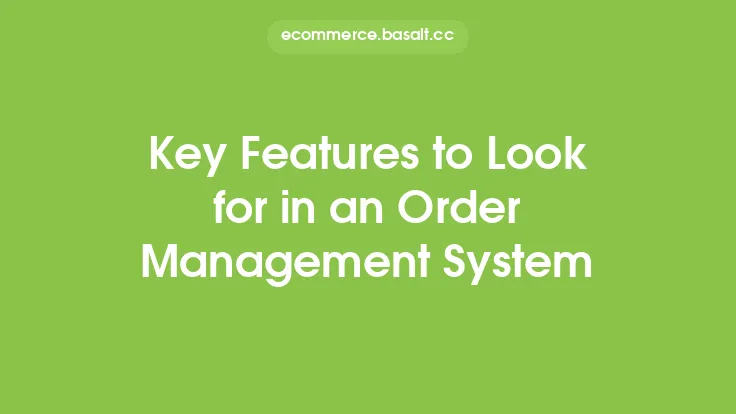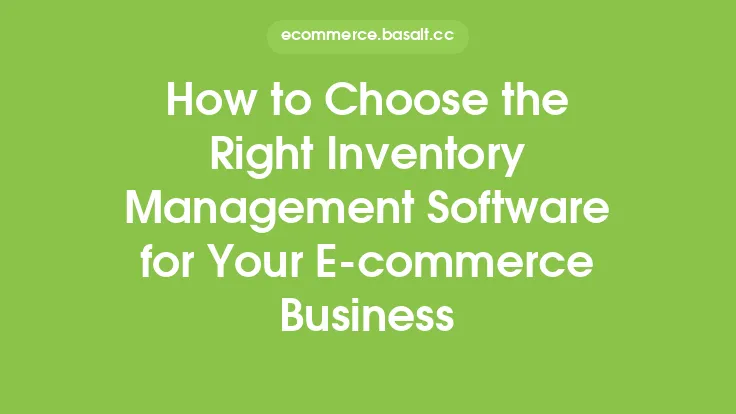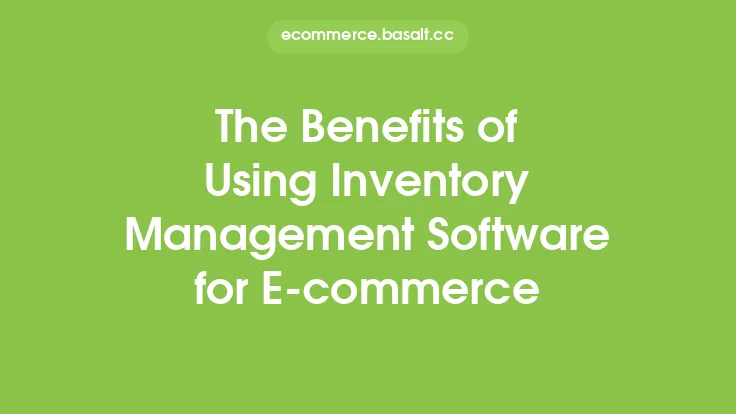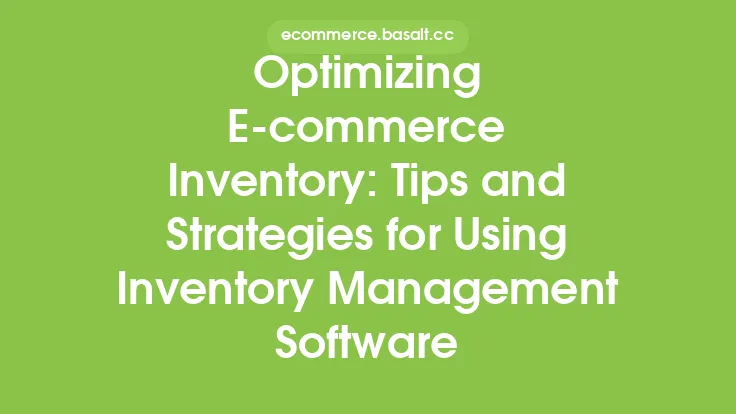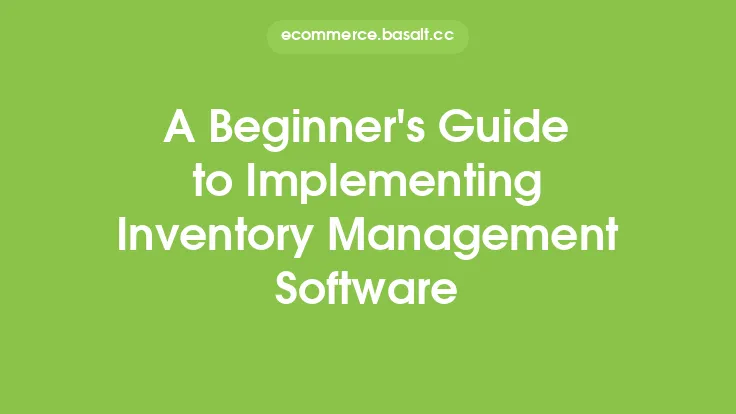When it comes to managing inventory for an e-commerce business, having the right tools is essential. Inventory management software is a crucial component of any e-commerce operation, as it helps to streamline inventory tracking, automate tasks, and provide valuable insights into inventory levels and trends. With so many different inventory management software options available, it can be difficult to know what features to look for. In this article, we will explore the essential features to look for in inventory management software, and provide guidance on how to choose the right solution for your e-commerce business.
Introduction to Inventory Management Software Features
Inventory management software is designed to help e-commerce businesses manage their inventory levels, track stock movements, and optimize inventory levels to meet customer demand. The right inventory management software can help to reduce stockouts, overstocking, and other inventory-related issues, and can provide valuable insights into inventory trends and patterns. When evaluating inventory management software, there are several key features to look for, including inventory tracking, automated reporting, and integration with other e-commerce systems.
Inventory Tracking and Management
One of the most important features of inventory management software is the ability to track and manage inventory levels. This includes the ability to monitor stock levels, track stock movements, and receive alerts when inventory levels fall below a certain threshold. Look for software that provides real-time inventory tracking, and that allows you to set up custom alerts and notifications to ensure that you are always aware of your inventory levels. Additionally, consider software that provides barcode scanning and RFID tracking capabilities, as these can help to improve the accuracy and efficiency of inventory tracking.
Automated Reporting and Analytics
Another key feature of inventory management software is the ability to generate automated reports and analytics. This includes the ability to track inventory levels, monitor stock movements, and analyze sales trends and patterns. Look for software that provides customizable reporting and analytics, and that allows you to set up custom dashboards and alerts to ensure that you are always aware of your inventory levels and trends. Additionally, consider software that provides integration with other e-commerce systems, such as accounting and customer relationship management (CRM) software, to provide a comprehensive view of your e-commerce operation.
Integration with E-commerce Systems
Inventory management software should be able to integrate with other e-commerce systems, such as online marketplaces, shopping carts, and accounting software. This includes the ability to sync inventory levels, track orders, and manage customer information. Look for software that provides pre-built integrations with popular e-commerce systems, and that allows you to set up custom integrations using APIs and other tools. Additionally, consider software that provides support for multiple sales channels, including online marketplaces, social media, and in-person sales, to ensure that you can manage your inventory levels across all of your sales channels.
Order Management and Fulfillment
Inventory management software should also provide order management and fulfillment capabilities, including the ability to track orders, manage shipping and handling, and provide customer updates. Look for software that provides automated order routing, and that allows you to set up custom workflows and rules to ensure that orders are fulfilled efficiently and accurately. Additionally, consider software that provides integration with shipping carriers, and that allows you to print shipping labels and track packages, to streamline the fulfillment process.
Product Variations and Bundling
If you sell products with variations, such as different sizes or colors, look for inventory management software that provides support for product variations and bundling. This includes the ability to track inventory levels for each variation, and to manage pricing and inventory levels for bundles and kits. Consider software that provides a flexible product catalog, and that allows you to set up custom product variations and bundles to meet the needs of your e-commerce business.
Multi-Warehouse Management
If you have multiple warehouses or storage locations, look for inventory management software that provides support for multi-warehouse management. This includes the ability to track inventory levels across multiple locations, and to manage transfers and shipments between warehouses. Consider software that provides a centralized dashboard, and that allows you to set up custom workflows and rules to ensure that inventory levels are optimized across all of your warehouses.
Security and Access Control
Inventory management software should provide robust security and access control features, including the ability to set up custom user roles and permissions, and to track user activity and changes. Look for software that provides encryption and secure data storage, and that allows you to set up custom alerts and notifications to ensure that you are always aware of any security issues or concerns.
Scalability and Flexibility
Finally, consider inventory management software that provides scalability and flexibility, including the ability to handle large volumes of inventory data, and to adapt to changing business needs and requirements. Look for software that provides a flexible and customizable platform, and that allows you to set up custom workflows and rules to ensure that your inventory management system meets the unique needs of your e-commerce business.
Conclusion
In conclusion, when evaluating inventory management software, there are several key features to look for, including inventory tracking, automated reporting, and integration with other e-commerce systems. By considering these essential features, and by evaluating software based on your specific business needs and requirements, you can find an inventory management solution that helps to streamline your e-commerce operation, and that provides valuable insights into your inventory levels and trends. Whether you are just starting out, or are looking to upgrade your existing inventory management system, the right software can help to reduce costs, improve efficiency, and drive business growth.
